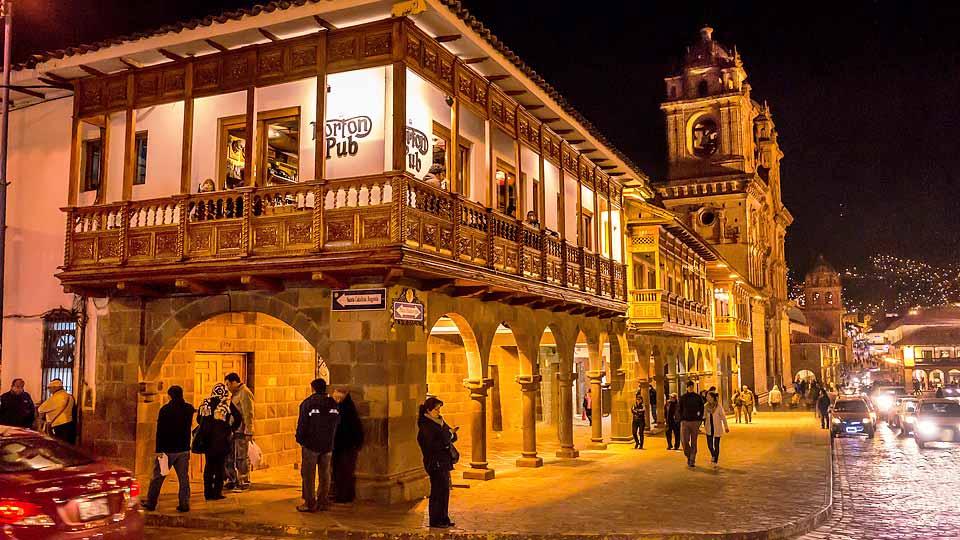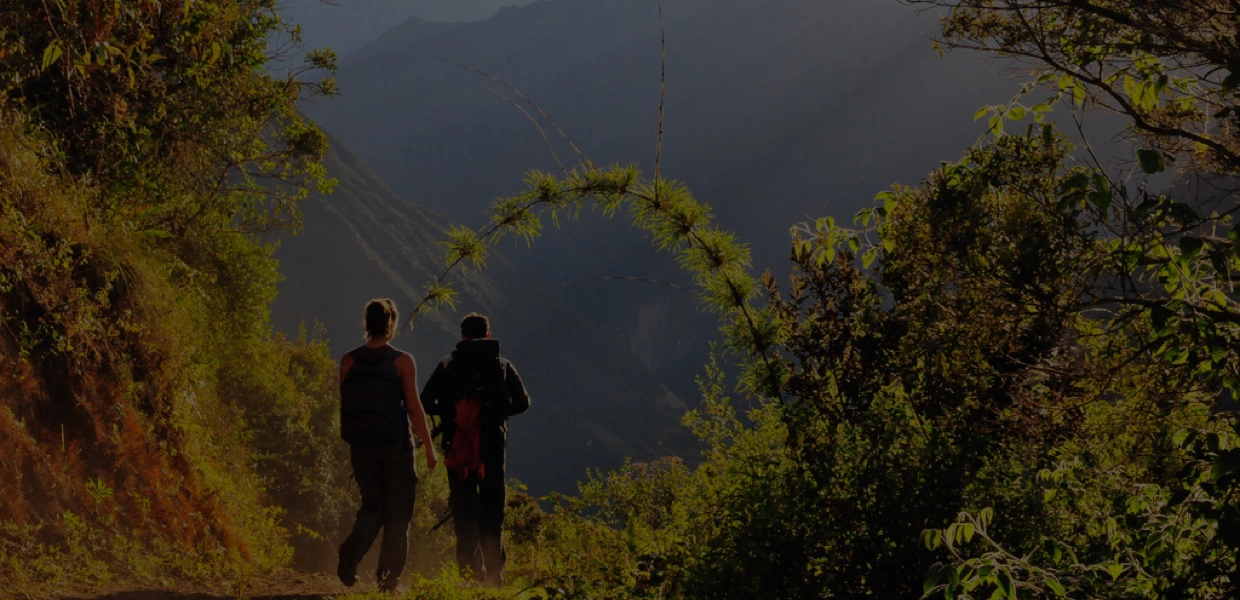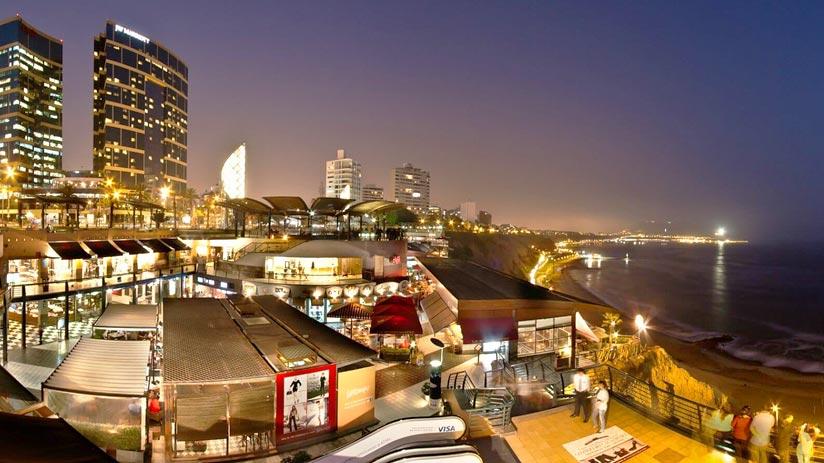Minor Offences in Peru
Fraud Involving Credit Cards and Cash
Incidents of Quickie Kidnapping
Street Robberies in Peru
Safety for Women in Peru
Tourist Police
Rebel Groups and Disputes in Peru
Minor Offences in Peru
Peru is generally a safe country to travel to. Although minor offenses like pickpocketing and theft exist, you don't have to be in constant fear if you practice some street wisdom. Poverty still exists in Peru, but the country significantly differs from its past, plagued by military tyranny, insurgency, corruption, and fear.

To ensure your safety and protect your valuables, follow these suggestions:
- Dress casually when roaming around towns and cities.
- Before traveling to Peru, take photographs or photocopies of your important documents and keep them at home or on a cloud drive.
- Enroll your passport at the embassy in Lima to save time if your documents are lost or stolen.
- Only carry the necessary cash for the day and keep it, along with your passport and documents, close to your body.
- Conceal your camera when not in use and consider using a reinforced bag strap and camera strap.
- Keep your bag in sight and nearby in eateries, and don't let your wallet or purse sit unattended on the tabletop.
- Be wary of groups operating at tourist attractions, bustling marketplaces, bus stations, and hotel lobbies.
- Hold onto your wallet and passport while you're asleep on buses.
- Use licensed phone or web-based taxi services or request your hotel to arrange one instead of flagging a taxi off the street.
- Exercise caution when arriving at Jorge Chavez International Airport in Lima and at bus terminals, and opt for the official taxi companies available at the kiosks outside the arrivals hall.
Stay safe and enjoy your trip to Peru!
Credit Card and Cash-related Crimes
When in Peru, it's important to be aware of credit card fraud. To prevent this, make sure your card is always visible during transactions. If the cashier takes a long time to return your receipt, they may be duplicating your card's information. Be vigilant for any suspicious activity in your bank account while traveling and after returning home.
ATM scams are prevalent in Peru, so it's best to avoid withdrawing cash at night or in unsafe neighborhoods.
Beware of fake notes as they are being circulated more frequently. Only exchange currency at trusted venues such as banks or hotels' exchange counters. Street money changers are risky as they may give counterfeit notes or even rob you. They may also use deception to give you less money than you deserve.
Instant Kidnappings
There has been an increase in instant kidnappings in South America, including Peru. Travelers are forced to visit multiple ATMs and withdraw as much cash as possible. To protect yourself, it's recommended to have a separate travel account that you can refill as needed. This also helps prevent card skimming.
In the event of a kidnapping, victims are usually released after reaching the withdrawal limit. However, some may be held until the account is completely drained.
Remember, you should never retaliate against your kidnappers. While material possessions can be replaced, life cannot.
Street Robberies in Peru
When visiting the Sacsayhuaman ruins in Cusco, it's important to be aware of the high risk of robberies, particularly during sunrise and sunset. To stay safe, it's recommended to visit in a group. It's also important to note that there have been reports of "strangle robberies" in Cusco, Arequipa, and Lima, where solo travelers are attacked from behind and robbed while unconscious. These incidents and other muggings tend to occur in poorly lit and secluded areas, so it's best to avoid walking alone, especially at night. Even in a group, taking a taxi after sunset is advisable.
If you'll be visiting the Amazon region, be aware that armed criminals have been known to target tourists. You should inquire about your cruise company or boat tour operator's security measures to ensure your safety. Many have armed police personnel onboard around the clock to protect passengers and staff. Additionally, the local police and coast guards have increased their presence in the region, including setting up checkpoints and using high-speed boats for emergencies.
In case of an armed robbery, it's important not to resist or do anything that could put you in danger. Stay calm, cooperate with the criminals, and immediately report the incident to the authorities.
Safety for Women in Peru
Peru is generally safe for women travelers, but they may attract attention, especially if traveling alone. However, locals often offer protective behavior. It's important to know that some persuasive locals, known as bricheros, may make unwelcome advances or comments.
If you feel uncomfortable, seek help from a security guard or enter a shop or restaurant. Women should avoid secluded areas and not ride cabs alone. Hitchhiking is also not recommended. Groping incidents have been reported on overcrowded minibusses (combis), so it's essential to alert the driver or ticket seller if this happens. It's also acceptable to make a scene to embarrass the offender.
Beware of drink spiking, as hallucinogenic plants are sometimes used in traditional shamanic rituals to stupefy tourists before a robbery or assault. Don't leave your drink unattended, and avoid consuming beverages you didn't buy or see poured.
If traveling to rural areas, consider dressing more conservatively, and wearing a ring to appear married can deter potential Peruvian Lotharios.
Tourist Police
If you experience theft or assault while traveling, it's important to contact the Policia de Turismo (Tourist Police) first. This specialized police force is dedicated to protecting tourists and the tourism industry. They are trained in English and equipped to handle various types of crimes against tourists.
If a theft occurs, the nearest POLTUR office can provide a case report and notify your embassy in case of serious crimes. It's important to note that false theft reporting is common in tourist areas, so you may face intense questioning about your testimony or even have your hotel room searched. However, it's important to remain polite and cooperative to expedite the process and return to your holiday as soon as possible.
If you have any complaints about hotels, tour companies, bus companies, or customs agents, you can contact the Servicio de Proteccion al Turista (INDECOPI). They maintain a 24-hour hotline and staff who speak both English and Spanish.
In Peru, police force members are widespread, and you will likely encounter them at borders and control points. While most interactions will be uneventful, there may be instances where they want to inspect your luggage. These searches can be rare, meticulous, and time-consuming. However, it's important always to be courteous and cooperative, as some law enforcement officials may view foreigners as potential drug traffickers or political dissenters, particularly near the drug-affected Colombian border.
It's crucial to note that drug possession is a serious offense in Peru and can result in extended jail sentences.
Rebel Activities and Conflict in Peru
There have been concerns about the safety of overland travel in Peru, but the risks are relatively low. The country's main rebel groups, the Shining Path (Sendero Luminoso) and the Tupac Amaro Revolutionary Movement (MRTA), have mostly disbanded. There hasn't been any significant rebel activity in tourist areas since 2002. Some rebels may still be present in remote areas near the north, and government travel advisories recommend avoiding areas near the Colombian border due to drug trafficking and occasional insurgent activity.
The US Bureau of Diplomatic Security has reported incidents of tourists being robbed by armed bandits associated with politically-driven groups while hiking near the Choquequirao ruins. Buses in remote jungle areas may occasionally be stopped, but these incidents usually result in coerced "donations" rather than hostage situations. While past incidents have injured foreign visitors, neither rebel group has specifically targeted foreigners for political purposes.
However, some roaming bandits in some areas and armed holdups have occurred in the past, especially at night in the north. As a result, it's best to exercise caution while traveling overland in Peru.





